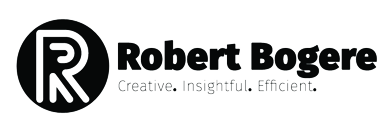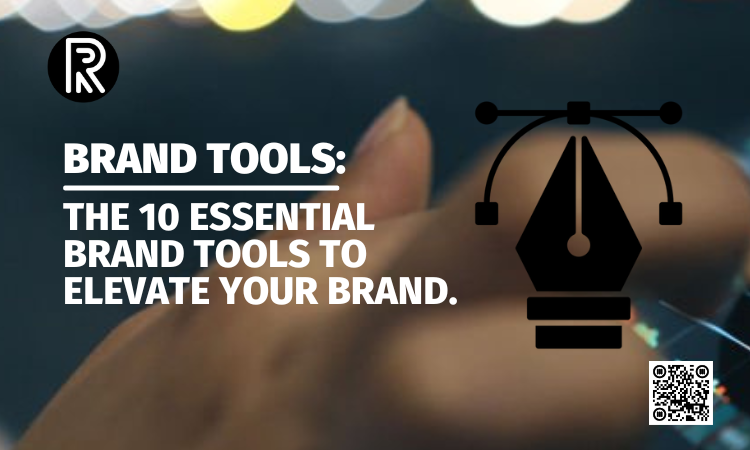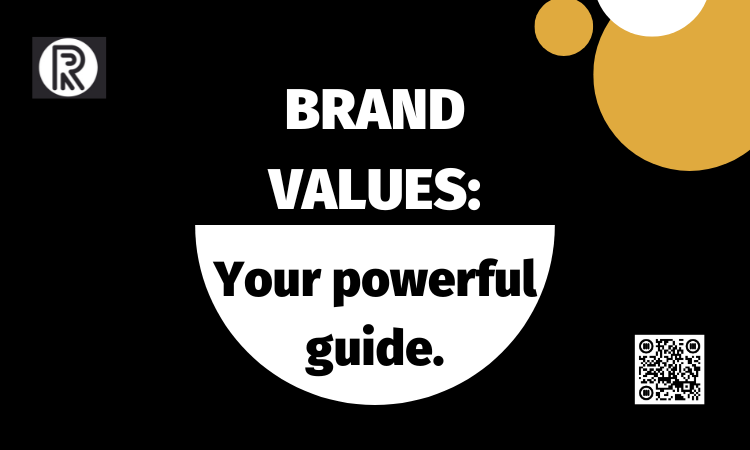Last Updated on Mon-Sep-2024 by Robert Bogere
Building your brand from zero can be a daunting task, but if you’ve got the right essential branding tools, strategies, and tactics in place. It’s easier to manage your brand.
Are you a brand founder, brand owner, manager, brand marketer, or start-up CEO? If yes, this is for you.
A memorable brand is a key differentiator that helps your brand to stand out in the marketplace.
What has helped Starbucks, Apple, Coca-Cola, and Pepsi at the top is having relevant branding tools that help keep their brands consistent most of the time something lacking with some start-ups because sometimes they operate with limited budgets.
The more you grow your business, the more your brand becomes solid. In this today’s article, you’ll learn;
Moving forward;
- What are branding tools?
- Why do you need branding tools?
- 10 Essential brand tools that’ll pave your brand growth
- 1. Canva—Good to develop visuals
- 2. Google Analytics—Good for online analytics
- 3. Google My Business—Good for relocating your business
- 4. MailChimp—Good for e-mail marketing
- 5. Trello—Good for project management
- 6. Frontify—Good for creating brand guideline assets
- 7. SEMrush—Good for SEO and online research
- 8. Hootsuite—Good for social media management
- 9. Google Trends—Good for search queries
- 10. Grammarly—Good for spelling and grammar
- Brand tools conclusion
What are branding tools?
Branding tools are software application helping you develop and refine your business’s reputation or increase the visibility of your reputation.
Why reputation? Because your brand isn’t an identity, slogan, etc. It’s what customers say about you. It’s your perception and reputation of your business in the minds of other stakeholders.
Branding tools help you and your team work on a unified look, sound, and feel across all your customer touch-points, hence improving your brand recognition in the marketplace.
Why do you need branding tools?
First, it’s important for your business because it sets you apart from similar businesses in the marketplace and lets your target customers choose your brand. Below is why you need such tools;
Help brand recognition
They will create a repetitive brand image and increase your brand’s presence offline and online. Such tools make your brand look the same across all your marketing assets.
Help team togetherness
These tools will assist your team in staying focused on your brand strategy. These tools help you ensure your team develops marketing assets with the same look, sound, and brand voice.
Help manage brand assets
Branding tools will help you manage and maintain their brand assets. Such tools will streamline your business operations, whether it’s about ensuring the logo’s rightful usage, hence improving brand consistency.
Help reduce branding costs
Branding tools will help your start-up to minimize branding costs. When you use brand tools, you reduce the costs for external agencies and other members, like freelancers.
Help adapt market trends
These tools will help you adapt to growing market trends and technologies. From developing appealing content to creating impactful video experiences.
10 Essential brand tools that’ll pave your brand growth
You’ll realize there are many branding tools for every marketing and branding activity.
From creative, content creation, social media to e-mail marketing tools. You can automate everything with just a few clicks.
Below are some branding tools that will help you push your brand towards imminent success.
1. Canva—Good to develop visuals

Canva is a design platform that’ll help you create and design appealing visuals for online and offline presence. Whether you’re an amateur or professional, it’s such an excellent tool.
Canva has free and paid plans. The free plan is remarkably useful with a drag-and-drop editor. You can access over 1+ million free photos and graphics.
With a Canva paid subscription, you can build a brand-centric kit that can help you your promote brand identity.
85% of fortune 500 firms use Canva design tool (Source: Fortune). Among those Fortune firms, there’s Zoom, Salesforce. Coca-Cola, McDonalds, Meta,etc (Source: Canva)

Discover: How you can use Canva design tool
2. Google Analytics—Good for online analytics

Nowadays, to build a powerful brand, whether you’re a start-up or any other brand, you need to have a website. A website acts as your face to your target audience who don’t know you.
Google Analytics offers you valuable insights into your website traffic, user behavior, website position, etc—such metrics will help you make data-driven decisions. This tool is completely free.
71% of small businesses use Google Analytics with < 50 employees, 6% of large businesses use Google Analytics with >1000 employees, and 23% of medium size businesses use Google Analytics (Source: Meetanshi)
3. Google My Business—Good for relocating your business

In case you’ve a physical address, Google My Business is good at managing your brand’s online presence on Google Maps and local search results.
It’ll make it easier for your potential customers to relocate your business. Google My Business is entirely free, but only for businesses that have websites. It doesn’t work for a business that doesn’t have websites.
64% of consumers use Google My Business to find contact details for local businesses, 94% of calls to local businesses come from GMB on weekdays, and an average business is discovered in over 1,000 searches per month (Source: Gitnux)
4. MailChimp—Good for e-mail marketing
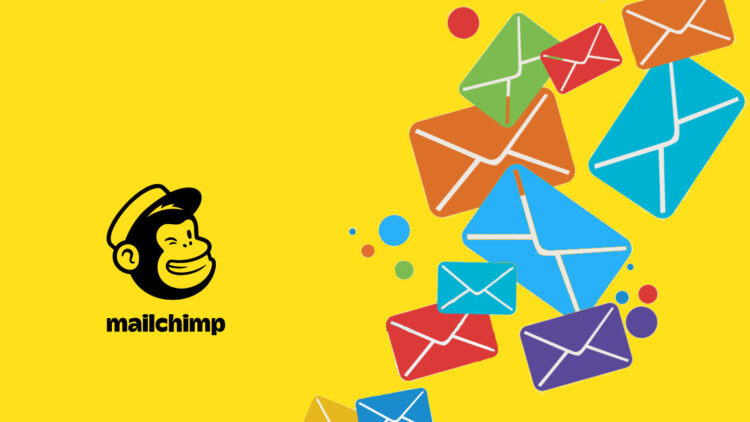
Since inbound marketing is the norm nowadays, e-mail marketing is a powerful branding tool that will nurture your relationship with your customers.
To use the underlying benefits of e-mail marketing, your business needs a tool to simplify such a process and make it more effective.
13 million total users which range range from 1-person startups, small businesses to Fortune 500 companies (Source: MailChimp)
5. Trello—Good for project management
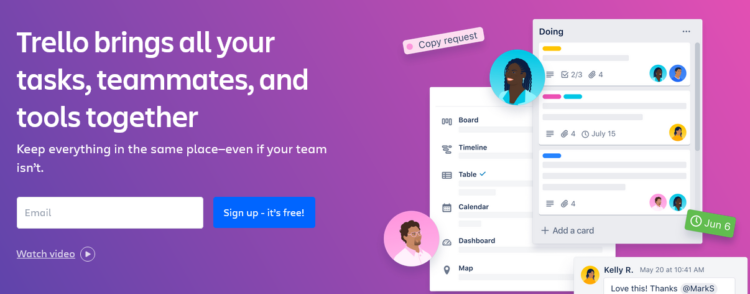
Building a darling brand, you’ll need to work on many projects, but you can’t manage such projects in isolation. You need to track your brand projects and tasks efficiently.
Trello offers a free plan that’ll enable you to organize your brand tasks, set deadlines, and collaborate with your team and external members in one place.
Looking at managing your brand projects? Trello is your number one tool to help you.
Trello has an estimated 1.1 million daily active users and over 2 million teams across the world use Trello to better manage their projects (Source: Soocial)
6. Frontify—Good for creating brand guideline assets

Think of an all-in-one tool that can build, store, and share brand guidelines assets. Such a tool is a one-stop center when you want to develop your brand logo, colors, guidelines, etc.
Your brand has a unique tone and voice. This tool will help you develop your brand guidelines using all the elements you need.
Your team can easily work together to ensure you stay on the same page without damaging your brand reputation.
Brands like Maesk, Microsoft, Allianz, Lufthansa, Telefonica, Uber, etc are taking advantage of Frontify brand (Source: Frontify)

7. SEMrush—Good for SEO and online research

SEMrush is a powerful online tool that’ll offer you relevant keyword research, SEO analysis, competitive intelligence, advertising, social media, etc.
This tool will help you optimize your online presence with search engines to drive your organic traffic. SEMrush is an invaluable tool for your brand to strategize and outrank competitors with their local search keywords.
It offers a free trial plan of 14 days for 1 single project and three (3) other paid plans. The only issue with this tool is somehow expensive for startups and it is not suitable for online newbies.

Discover: How SEMrush SEO works
8. Hootsuite—Good for social media management

If you want to manage your brand on any social media—Facebook, Twitter, Instagram, TikTok, LinkedIn, etc. Hootsuite will help you schedule and manage your content across the above platforms allowing you to tell a cohesive brand narrative.
Hootsuite is such a good social media monitoring tool that’ll offer you brand sentiment analysis capabilities. It’ll enable you to schedule posts, track mentions, and analyze your social media performance across many platforms.

9. Google Trends—Good for search queries

If you want your brand to stay relevant and adapt your brand strategy, you need to find out trending topics and keywords.
Google Trends will help you spot trending search queries, enabling your brand to align its brand messaging and tone with the most current interests and discussions.
10. Grammarly—Good for spelling and grammar

If you’re into content marketing, use Grammarly to check errors in your content to maintain your brand tone and voice.
Personally, Grammarly is what I use to check grammar for my blog content. It’s such an advanced writing assistant that’ll check your grammar, spelling, punctuation, and tone issues.
Grammarly has more than 800 employees. 93% of all respondents reported that Grammarly helped them save time while writing. 99% of students reported that Grammarly has helped them improve their grades. Grammarly receives more than 30 million searches per day (Source: Grammarly).
Brand tools conclusion
When building a powerful brand, brand tools will be instrumental in taking your brand from 0 to success.
Whether you’re creating appealing graphics, managing social media, analyzing data, or maintaining customer relationships, such tools will support you in building a powerful brand and fostering growth.
These are not the only tools you can use to grow your brand. Many of these tools offer you free plans. It’s essential to invest time and effort in using them effectively to achieve your brand’s full potential.
Discover: Bonus brand tool you can use to leverage your brand.
